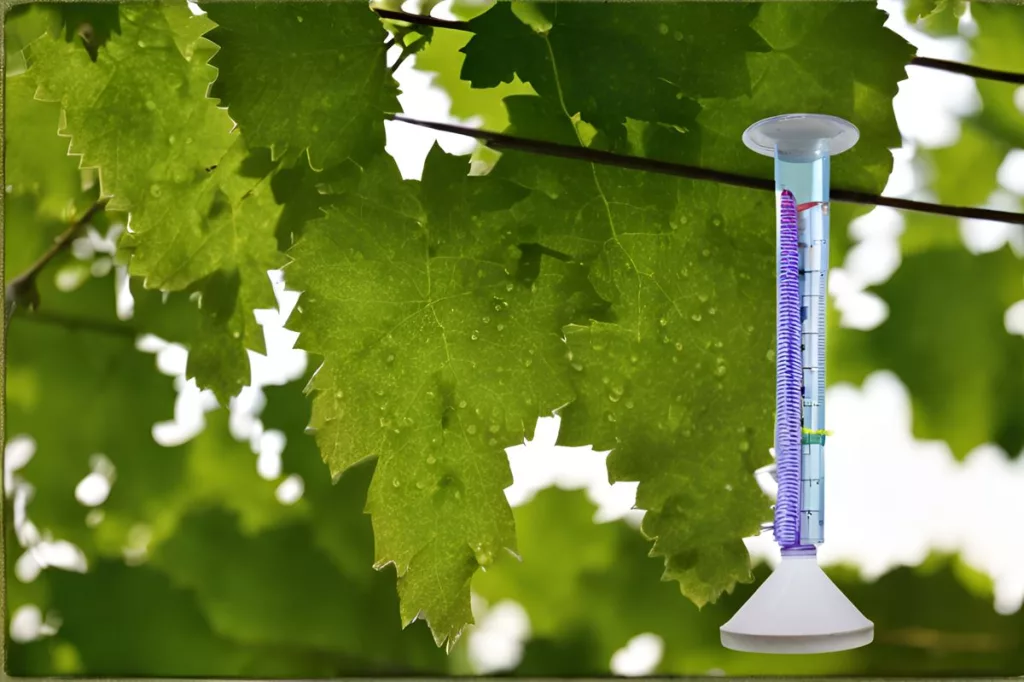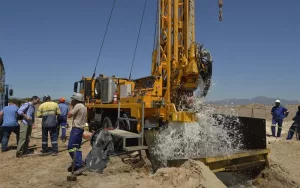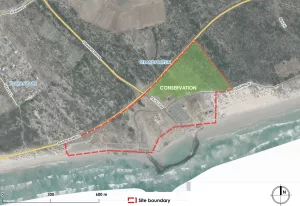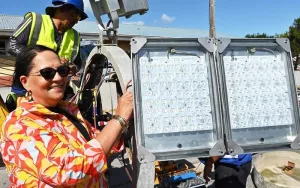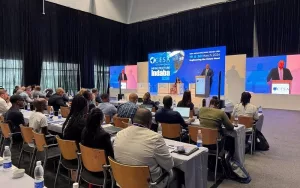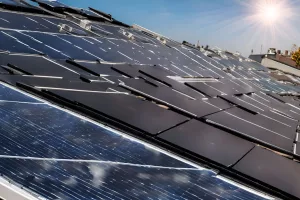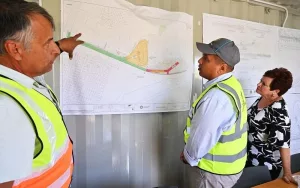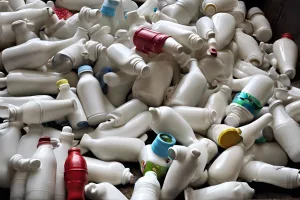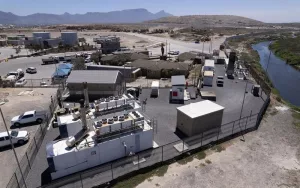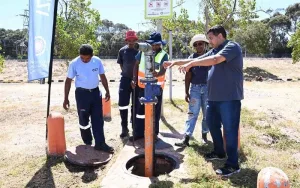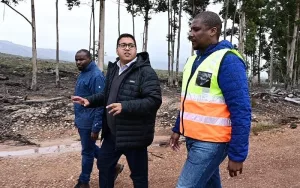The South African wine industry is adapting to climate change by replanting vineyards to conform to natural contour lines, installing drains to direct rainfall towards a reservoir, fostering biodiversity to enhance soil fertility, and preparing for future climate challenges. The vineyards in Stellenbosch are being extensively restructured to better endure heavy rain episodes, and the goal is to create a harmonious relationship with nature. The industry must prepare for a global temperature escalation of up to 3 degrees Celsius and a 30% shrinkage in annual rainfall by midcentury.
Cape Town’s Approach to Water Security: A Crucial Move Towards Enduring Adaptability
Cape Town is taking a proactive approach to water security by diversifying its water sources and implementing cuttingedge technologies for water recycling and desalination. The New Water Programme aims to boost daily water supply by 300 million litres by 2040 through various strategies, including invasive plant species clearance and groundwater exploitation. Citizen engagement is also critical to strengthening the city’s water resilience. With escalating challenges sparked by climate change and urbanisation, Cape Town’s efforts reflect resilience, adaptability, and the power of collective action.
The Strandfontein Coastal Development is a project by the City of Cape Town to transform an underutilized coastal region into a mixedpurpose urban hub while safeguarding the environment. The plan includes biodiversity, socioeconomic growth spaces, job creation, and residential opportunities. The City is engaging an independent environmental consultant to ensure strict adherence to environmental norms. The public will have opportunities to engage and offer feedback throughout the development process, demonstrating the City’s commitment to community welfare and environmental preservation.
The Khayelitsha LED highmast renovation project is replacing old highmast lights with stateoftheart LED fixtures in an effort to promote economic growth, increase safety, and reduce energy usage. The first phase is being implemented in the neighborhood of Makhaza, with a total of 222 highmast fixtures to be replaced across Khayelitsha. This initiative represents a significant investment in the city’s key infrastructure and signifies a significant shift towards urban sustainability. However, the success of this initiative depends on collective responsibility and the support of the community.
Engineers are critical to Cape Town’s sustainable development, working with the government to combat challenges in transportation, housing, water management, waste minimization, and water purity. The city sees its socioeconomic issues as stepping stones towards a more inclusive community, with engineers at the forefront of its grand blueprint. Their skills and expertise are deployed to prioritize infrastructure development, enhance urban mobility, and improve water and sanitation systems. Building trust and collaborating with local communities are key to ensuring a resilient and innovative future for Cape Town.
Devonbosch is a new urban development that focuses on sustainability, community, and innovation. Its unique architectural masterpiece, Building B North, is made up of ten distinct structures that create a microcosm within the larger building. Devonbosch offers a cyclist’s paradise, fitness options, community spaces, and an Italian restaurant called Ischia. The development is committed to sustainability, community engagement, and technological advancements, making it an attractive investment opportunity for the forwardthinking.
Bingo, the antilitter mascot of the City of Cape Town, has been visiting schools to spread the message of antilittering and correct waste disposal. Bingo’s interactive method has been successful in engaging children and encouraging their passion for preserving the environment. The City officials believe that this initiative can redirect future generations from the prevailing trend of littering and dumping rampant in several communities. Schools are motivated to schedule a visit from Bingo, highlighting the potential of using novel methods to communicate essential social and environmental messages.
Embracing Sustainability: City Water and Sanitation Directorate Announces Scheduled Maintenance
The City’s Water and Sanitation Directorate is conducting scheduled maintenance from 5th to 7th March, 2024, to improve sustainable infrastructure. This will lead to interruptions in the water supply, and residents should prepare for the temporary situation. Zeropressure tests, conditional assessments, and additional maintenance work will be carried out in the affected areas to ensure efficient and reliable water supply infrastructure in the future. The City urges residents to store enough water and follow @CityofCTAlerts for updates.
The Dawn of Sustainability: Global Aid Fuels Urban Solar and Eco-friendly Initiatives
One city is leading the way towards a more ecoconscious future with the help of global aid. The city is receiving technical support valued at over R4 million, which will aid its energy initiatives and create opportunities for knowledge sharing. The city is committed to sustainability strategies and has introduced innovative initiatives, such as the Power Heroes program, to promote sustainable resource management. With ongoing backing from international organizations, the city’s future looks bright indeed.
The Bayside Canal Upgrade is a groundbreaking project aimed at balancing urban growth with environmental conservation in Cape Town. The R87.5 million revamp of the canal includes innovative strategies such as sedimentation ponds, a secondary treatment channel, and reed bed ponds, as well as a search and rescue operation to preserve rare and endangered plant species. The upgrade exemplifies the city’s dedication to sustainable urban planning and provides a tangible example of the benefits of balancing growth with environmental protection.
Barrydale Hand Weavers is an artisanal weaving brand located in Barrydale, South Africa, that uses locally sourced cotton scraps to create ecofriendly fashion. Their collaboration with Uni Form’s creative head, Luke Radloff, has propelled them to the world’s foremost fashion stage Paris Fashion Week 2024. The brand serves as a shining beacon of global textile production and offers a sustainable source of income for over 30 families. Their story serves as a motivational reminder of the power of passion, craftsmanship, and steadfast dedication to sustainable practices.
Cape Town is leading the way towards a sustainable future by adopting green energy through various projects such as embedded generation, solar, and energy utility reform. The city has secured global technical support from the Deutsche Gesellschaft für Internationale Zusammenarbeit (GIZ) and the German Development Bank (KfW) to fasttrack these projects. Cape Town’s commitment to diversifying its energy sources is witnessing steady advancement and is setting a global standard for the adoption of renewable energy.
Hope Sonic is a manufacturing plant in South Africa that creates toys from recycled plastic, primarily obtained from waste pickers. The plant is committed to sustainability, using solar power for 2024% of its daily energy demands and aiming to transition to renewable energy completely. The predominantly female workforce embodies the company’s values of empowerment and growth. Hope Sonic serves as a model for green manufacturing and environmentally friendly businesses.
Cape Town is leading the way in waste management by converting landfill gas into electricity through an innovative wastetoenergy project. The project involves drilling pipes into the landfill site to channel the gas to motors where it is used as fuel to generate electricity. The initiative is set to produce 15 million kWh annually and will earn the city ‘Carbon Credits’ which can be traded to fund additional projects that mitigate the health and pollution ramifications of waste. This project serves as an inspiring model of urban resilience and creativity, marking a step towards a greener, more resilient city.
Cape Town is taking bold and proactive steps towards a sustainable water future by promoting the use of treated effluent as a substitute for potable water in nonconsumable contexts. With over 330 connections across the city, the treated effluent infrastructure is promoting sustainable and practical water consumption. The city is leading by example, utilizing treated effluent to irrigate its parks and recreational facilities, and is urging various sectors to transition to this resource to contribute towards water conservation.
In Cape Town, there is a battle against invasive plant species that consume 55 billion litres of water annually. The Water and Sanitation Directorate of the City of Cape Town and the Greater Cape Town Water Fund are working together to eradicate these plants and have already recouped 16.1 billion litres of water through removal efforts. This initiative has also created 787 green jobs and employed 151 specialized highangle technicians, while contributing to the city’s water strategy and longterm New Water Programme for a sustainable future.

